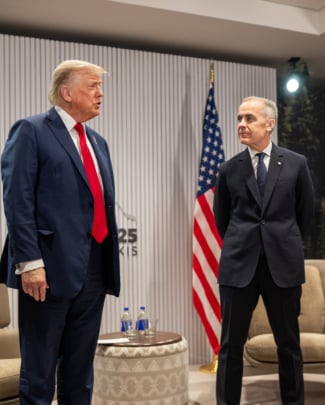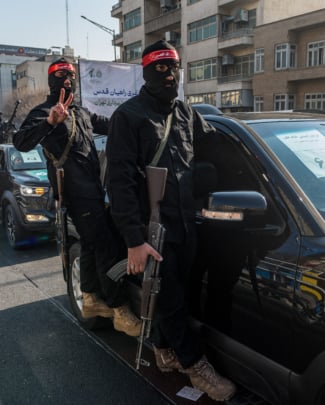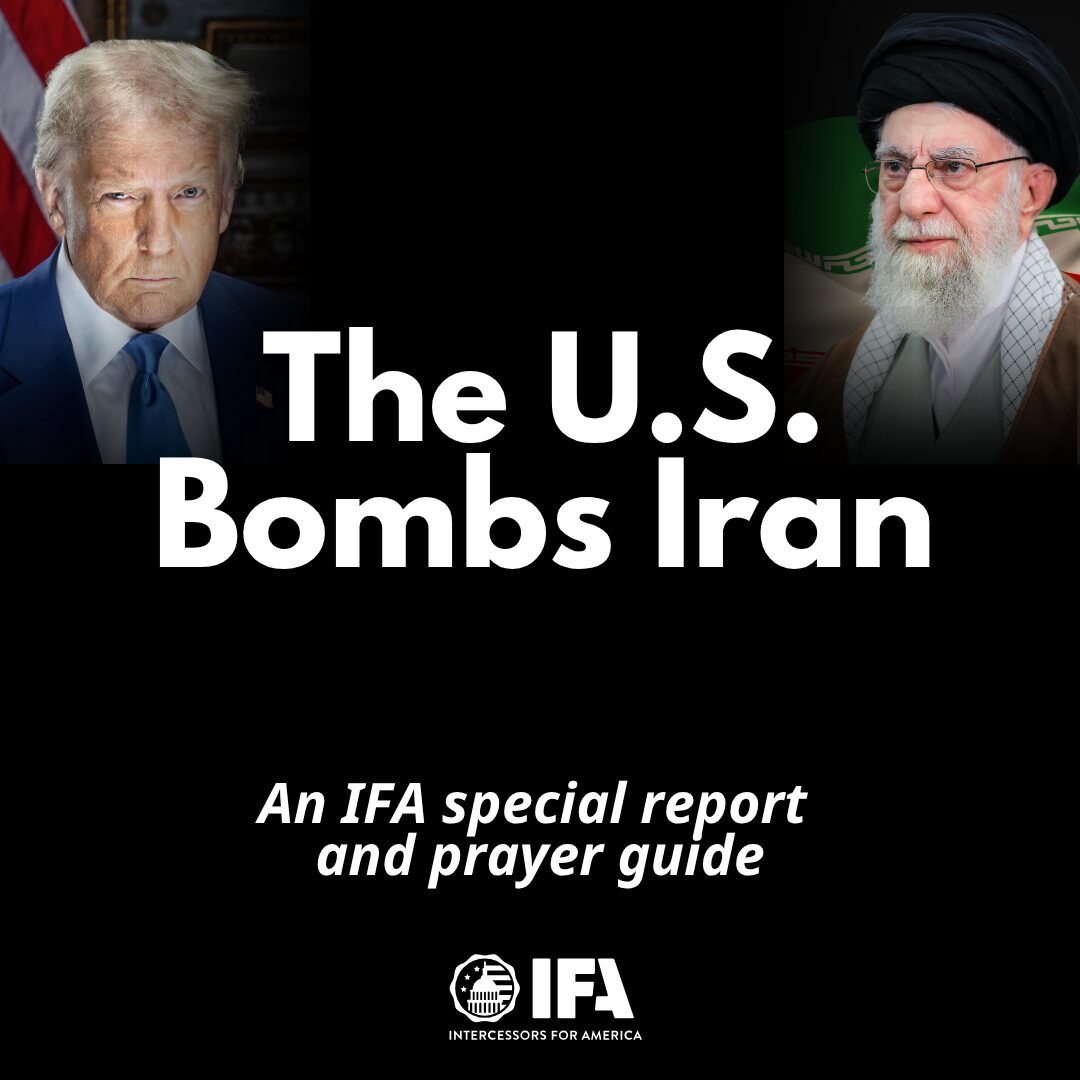Ukraine War and Israel’s ‘Neighbor’ Russia
The Freedom of Disassembling God Boxes
Pastors, Do Not Stay Silent on LGBTQ+
Trump’s Candidates Are on a Winning Streak
Left-wing Group Plans Protests at Justices’ Homes
Ukraine War and Israel’s ‘Neighbor’ Russia
The terrible war in Ukraine is causing tensions to grow between Israel and its “neighbor” to the north — Russia.
Of course, these nations do not actually border one another, but ever since 2015 Russian forces have been active in Syria battling insurgents against the brutal and then-endangered regime of Syrian President Bashar al-Assad. In fact, Israeli Foreign Minister Yair Lapid has said his nation’s border with Syria “for all intents and purposes, is a border with Russia.”
This situation alone has necessitated Israel’s attempts to maintain open communication channels with Russian leaders. With Iran — a declared existential enemy of Israel — also active in Syria and working to support the Hezbollah terrorist group in Lebanon, leaders in Jerusalem are keenly interested in ensuring their ability to conduct airstrikes there when needed. They have often been intentional about coordinating plans with Russian counterparts in order to avoid accidents that could enflame relations.
However, Russia’s aggression in Ukraine is complicating that already delicate relationship. So far Israel has tried a diplomatic balancing act. While joining democratic partners in the West in denouncing the invasion and providing humanitarian assistance, Jerusalem has been reluctant to impose major sanctions on Russia or ship weapons to Ukraine. And Israeli Prime Minister Naftali Bennett hopes to be a mediator in the conflict, actively conversing with Russian President Vladimir Putin.
But the strength of Israel-Russian relations appears to be quickly deteriorating, particularly after a recent incendiary comment from Russia’s top diplomat. As a justification for its aggression, Moscow has claimed it is fighting modern-day Nazis in Ukraine. When challenged on an Italian television program how this logic squares with the fact that Ukrainian President Volodymyr Zelensky is Jewish, Russia’s foreign minister said, “That fact does not negate the Nazi elements in Ukraine. I believe that Hitler also had Jewish blood… some of the worst anti-Semites are Jews.”
Israel’s Prime Minister Bennett regarded these comments “with utmost severity” and Foreign Minister Lapid said they were “unforgivable and outrageous… the lowest level of racism against Jews.”
Bennet added, “The goal of such lies is to accuse the Jews themselves of the most awful crimes in history, which were perpetrated against them, and thereby absolve Israel’s enemies of responsibility.”
Despite the outcry, Russia’s foreign ministry is standing by the comments and insisting that “the current Israeli government supports the neo-Nazi regime in Kyiv.” Moreover, in what could be perceived as another retaliation, Moscow in recent days opened its doors to a visit from leaders of Hamas, the terrorist group that rules Gaza.
What happens next? One former Israeli Knesset member and scholar, Ksenia Svetlova, said in March, “Even if coordination breaks down in the skies above Syria, it still seems illogical for Moscow to risk opening another front by taking on Israeli planes directly. However, as the last month has shown, Russian foreign policy logic can be difficult to predict.”
Svetlova, who immigrated from Russia to Israel as a teenager in 1991, suggested that a possible worst case could be that Russia attempts to reassert its ties with other powers in the Middle East and perhaps sells advanced weapons to enemies of Israel. It could even contribute to a nuclear race in the region.
More recently, a Wall Street Journal report suggests Svetlova — among other observers — does not seem convinced the latest shocking rhetoric will suddenly change Israel’s policies. But she did tell reporters that Israel faces a real challenge in the midst of the Russia-Ukraine war.
“At the end of the day, you can’t dance at both weddings,” she said.
How will you pray for Israel and its relations with Russia and Ukraine today?
Aaron Mercer is a Contributing Writer with two decades of experience in Washington, D.C.’s public policy arena.
Partner with Us
Intercessors for America is the trusted resource for millions of people across the United States committed to praying for our nation. If you have benefited from IFA's resources and community, please consider joining us as a monthly support partner. As a 501(c)3 organization, it's through your support that all this possible.


We use cookies to ensure that we give you the best experience on our website. If you continue to use this site we will assume that you are happy with it. Privacy Policy





Comments
Teresa,
David Jerimiah seems to differ with your observations:
https://www.youtube.com/watch?v=EZq-UJvhLzfE&t=717s
Phil, Jase, and Al Robertson share stories about their “on the ground” experiences in Ukraine starting at minute 16:00 of this video:
https://www.youtube.com/watch?v=lqeJBdq5TVk
Knowing that there is great human trafficking in this country( Ukraine) and all the Biden dirty money too, the U.S. should be trying to clean it up rather than abbetting it. If Nancy Pelosi is on one side of an issue, I’m on the other side. So Russia is being used by God; see the clips of citizens welcoming the Russian troops in areas that had fighting. Much of the killing is done by the Neo nazis (be sure not to support them! Use discernment!) and is being blamed on the Russians by a complicit media. Russia is 30 years past the Socialism we feared, and they don’t put up with sexual perversion. Putin is on the Rothschilds’ list of people who have betrayed the globalist agenda. Look all this up. The media has lied about EVERYTHING, they are lying about this.